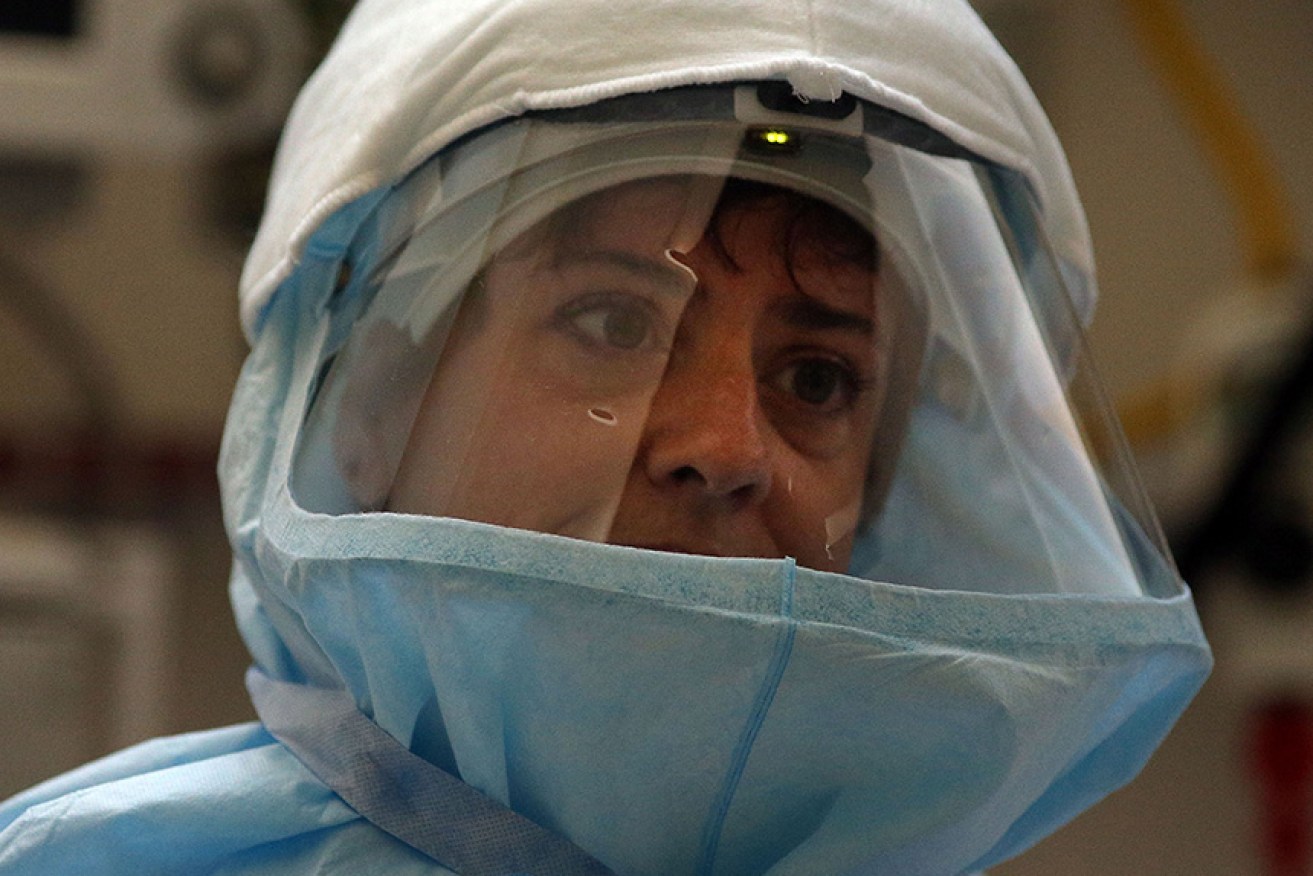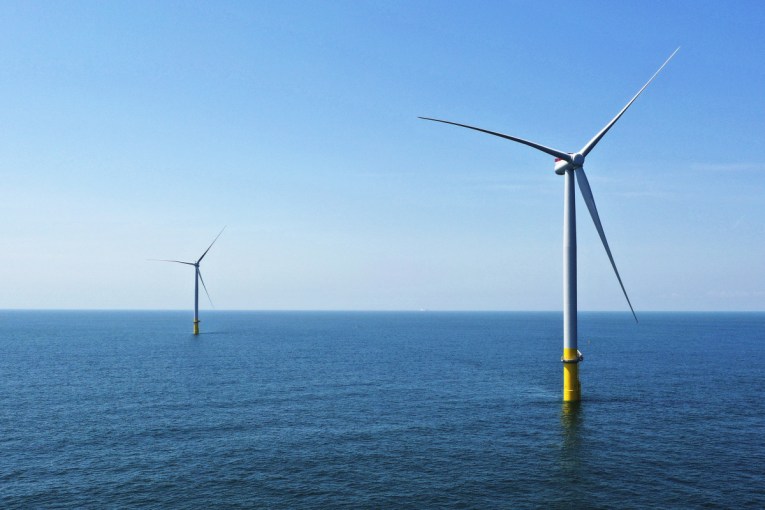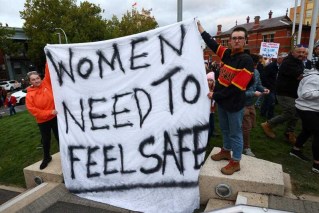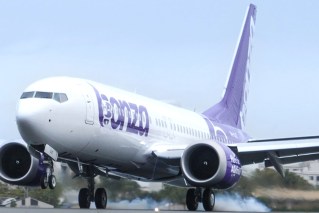Cairns nurse Ebola test negative


Getty
A Cairns nurse has tested negative for the Ebola virus after returning from working in a treatment centre in Ebola hotspot Sierra Leone.
Initial blood tests on Sue-Ellen Kovack have returned negative, but health officials say she will continue to be monitored for at least another day.
Ms Kovack returned to Australia at the weekend after spending a month volunteering at an Ebola hospital with the Red Cross in Sierra Leone – one of the countries hardest hit by the virus that has already claimed almost 3900 lives across five west African nations.
The 56-year-old was admitted to Cairns Hospital on Thursday with a “low-grade fever”.
Queensland Premier Campbell Newman said the negative test result was heartening but the World Health Organisation required three full days of negative tests.
“Let’s keep our fingers crossed for the patient involved,” he told reporters in Canberra.
• US Ebola scare continues
· American Ebola patient dies
• World Bank reveals huge cost of Ebola outbreak

Nurse Sue-Ellen Kovack working in an Ebola hospital in Sierra Leone. Photo: Supplied
When news broke of the potential Ebola case, Queensland’s Chief Health Officer Dr Jeannette Young moved to allay public fears over the potential for the disease to spread, saying Ms Kovack had been isolated since developing the first signs of symptoms.
“Ebola virus is very difficult to transmit … you need to be exposed to secretions,” Dr Young said.
Outbreak getting worse ‘day by day’
Australian Medical Association vice president Stephen Parnis told The New Daily the disease was discovered many decades ago, but that this outbreak is “certainly the worst epidemic of Ebola by a long way”.
“The way that we act now will determine how far this disease spreads,” Dr Parnis said.
The epidemic is “getting worse day by day,” he said.
“The number of people who we are certain of being infected can be measured in a few thousand at the moment. If we are not careful, by the end of the year this could well be hundreds of thousands,” Dr Parnis said.
“The majority of them will die as things currently stand if they are infected with Ebola.”
Australian outbreak ‘inevitable’
University of Queensland professor of virology Alexander Khromykh, who is researching a vaccine for Ebola, told The New Daily a confirmed case in this country is “kind of inevitable” because of the number of Australians assisting in the health crisis in Sierra Leone.

Sue-Ellen Kovack is being tested for Ebola virus. Photo: Supplied
Ebola is deadly but not highly contagious because it is not spread through the air like influenza, but rather spread via very obvious bodily fluids such as infected diarrhoea, vomit and blood, Prof Khromykh said.
The only proven, widely available treatment for Ebola is fluid replacement. Death is usually caused by massive fluid loss and organ failure.
Radical treatments involving genetically modified antibodies and blood transfusions from those who have survived the virus are rumoured to have been tested, Prof Khromykh said.
The vaccine being developed by Prof Khromykh and his team cannot proceed without millions of dollars in funding and at least two or three more years of further trials.
‘Complacent’ airport screening
Amid rising concern about the potential for the disease to make it to Australia, Health Minister Peter Dutton on Thursday evening played down the need for greater screening at the nation’s borders.

Queensland Chief Health Officer Dr Jeannette Young. Photo: AAP
But introducing screening in arrival halls can be problematic, he said.
“It provides a sort of air of complacency if you like,” he told the ABC.
“So people come through, they feel unwell a couple of days later and they think `no, no, I’ve just been through that screening process and I wasn’t picked up, I’m ok’.”
Dr Young praised Ms Kovack’s work with the Red Cross.
“I think she’s an amazing lady to go to Africa and provide that service,” Dr Young said.
The world’s worst outbreak of Ebola has killed 3865 people out of 8033 infected so far this year, mainly in Liberia, Sierra Leone and Guinea, according to the latest count of the UN’s World Health Organisation.
Ms Kovack’s bravery praised
Ms Kovack, a charitable nurse, had spoken with pride about the work she did in Sierra Leone, including taking blood from an 11-year-old Ebola survivor expected to be cleared of the disease.
“Scary moment but went smoothly,” Ms Kovack posted on Facebook in September.
“A pivotal moment for sure in my career.”
She also spoke about how anxious she was before she left, but wanted to help regardless of the risk.
The Red Cross praised her bravery and the bravery of its 40,000 other volunteers who have helped in west Africa.
“We will do everything we can to support her at this difficult time,” Mr Walton said.
Australia has investigated three suspected cases of Ebola previously.
A woman, who had attended a conference in African, was released from quarantine at a Perth hospital on September 23 after being cleared of the disease.
A one-year-old child was cleared of any infection after being taken to a Melbourne hospital on September 19 with suspicious symptoms.
The child had returned to Australia from west Africa five days earlier.
A third suspected case on the Gold Coast was cleared by tests after a man claiming to have spent time in west Africa complained of vague symptoms while in police custody.

The emergency department entrance of Cairns Hospital, where a woman is being treated for suspected Ebola. Photo: AAP








